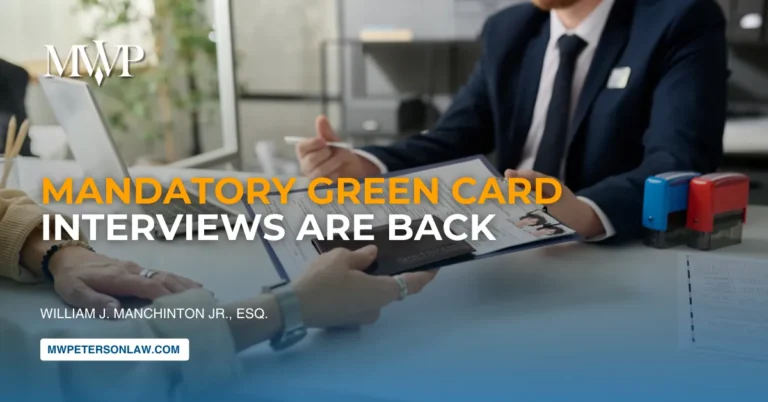Why The Clerk Magistrate's Hearing Matters More Than You Think
If you’ve been summoned to a clerk magistrate’s hearing, you’re likely facing your first formal encounter with the criminal justice system. This type of hearing determines whether there is enough evidence to issue a criminal complaint against you. Although it may seem informal, what happens in this hearing can greatly impact your future and potentially keep charges from ever being filed. It’s essential to understand what to expect at a clerk magistrate’s hearing in Boston so you can be fully prepared. Don’t take chances—contact a Boston clerk magistrate’s hearing attorney now to protect your rights and build a strong defense from the start.
What Is a Clerk Magistrate's Hearing?
A clerk magistrate’s hearing represents the very first hearing that takes place at a courthouse in the criminal justice process. This preliminary proceeding occurs before an assistant clerk magistrate, who serves as the decision-maker in determining whether criminal charges should formally issue against you.
The hearing takes place in a courthouse setting, though not necessarily in a traditional courtroom. Despite the informal nature of the proceedings, everything that occurs will be recorded. However, these recordings are sealed and typically only made available to prosecutors upon request if charges are ultimately issued.
The Participants and Process
During the hearing, the assistant clerk magistrate will administer the oath to a member of law enforcement, who will present the Commonwealth’s case. Occasionally, victims may appear to testify, though this is relatively uncommon unless they are particularly affected by the alleged incident. The sworn witnesses carry the burden of establishing probable cause that you committed the alleged crime as the respondent.
One of the most important aspects to understand about clerk magistrate’s hearings is their decidedly informal nature. The rules of evidence are very flexible, and hearsay testimony is admissible. This relaxed evidentiary standard makes it easier for the Commonwealth to present its case, but also means that the proceedings can feel less structured than what you might expect from television portrayals of court hearings.
The Probable Cause Standard
The Commonwealth must establish probable cause that you committed the alleged offense. This is a relatively low threshold—lower than the preponderance of the evidence standard, which requires only slightly more than 50% certainty. Probable cause requires even less certainty than that baseline. Given this low bar and the admissibility of hearsay evidence, challenging probable cause on purely mechanical grounds can be quite difficult. The standard typically comes down to whether the charges are an appropriate fit for the conduct being alleged.
Why Legal Representation Matters
While you have the right to represent yourself at a clerk magistrate’s hearing, doing so is often not advisable. Any statements you make during the hearing will be attributable to you in future proceedings. This creates a significant strategic disadvantage, as your words can potentially be used against you later in the process.
An experienced Boston attorney can speak on your behalf without having those statements attributed to you personally. Additionally, a lawyer can effectively advocate on various aspects of the hearing, question witnesses, and present the strongest possible case for why charges should not issue.
The Two-Part Defense Strategy
After the Commonwealth presents its case, you (preferably through your attorney) can make essentially a two-part argument. The first component involves challenging whether probable cause exists. As mentioned, this mechanical argument is typically very challenging to make successfully due to the low probable cause threshold.
However, when clerk magistrates indicate they believe probable cause exists, this opens the door to the second and often more promising line of defense: arguing that issuing charges would not serve the interests of justice.
The Interest of Justice Analysis
The interest of justice component represents where a well-prepared attorney can potentially achieve the greatest success for their client. This aspect allows for a more nuanced presentation that goes beyond the bare facts of the alleged incident.
Effective advocacy at this stage often involves presenting a three-dimensional picture of who you are as a person. This might include letters of support from community members, employers, or family members. Information about your role in the community, your character, and the kind of life you lead can help the clerk magistrate see you as more than just a name on a piece of paper or a defendant described by law enforcement.
The goal is to convince the clerk magistrate that running you through the criminal justice process would not serve the interests of justice, given your specific circumstances and background. When successful, this approach can lead to alternative resolutions or a decision to decline issuing charges altogether.
Possible Outcome And What To Expect At A Clerk Magistrate Hearing in Boston
A clerk magistrate’s hearing can conclude in one of three ways. First, charges can be dismissed entirely—this represents the best possible outcome. Second, charges can be issued, leading to formal arraignment and the beginning of the traditional criminal process. Third, there’s sometimes a middle ground where charges are held for a specified period (typically 3, 6, or 12 months) and will be dismissed if you avoid any further legal trouble during that time.
Why This Hearing Is Critical
The stakes at a clerk magistrate’s hearing cannot be overstated. If you successfully have charges dismissed at this stage, it’s as though the incident never happened from a legal perspective. The matter will not appear on your criminal record, and while there may be some notation in law enforcement databases, this information is not publicly accessible and will not show up on criminal history reports.
Conversely, if charges are issued and you proceed to arraignment, that fact will appear on your criminal history even if you’re eventually acquitted or the case is later dismissed. This permanent record can have lasting consequences for employment, housing, and other opportunities.
The clerk magistrate’s hearing represents your best opportunity to stop a criminal prosecution before it truly begins. With proper preparation and skilled advocacy, this preliminary hearing can serve as both the first and final step in your encounter with the criminal justice system.
Contact the Law Office of Matthew W. Peterson to start a strategy session today—your best choice to avoid trial and keep your record clean.











